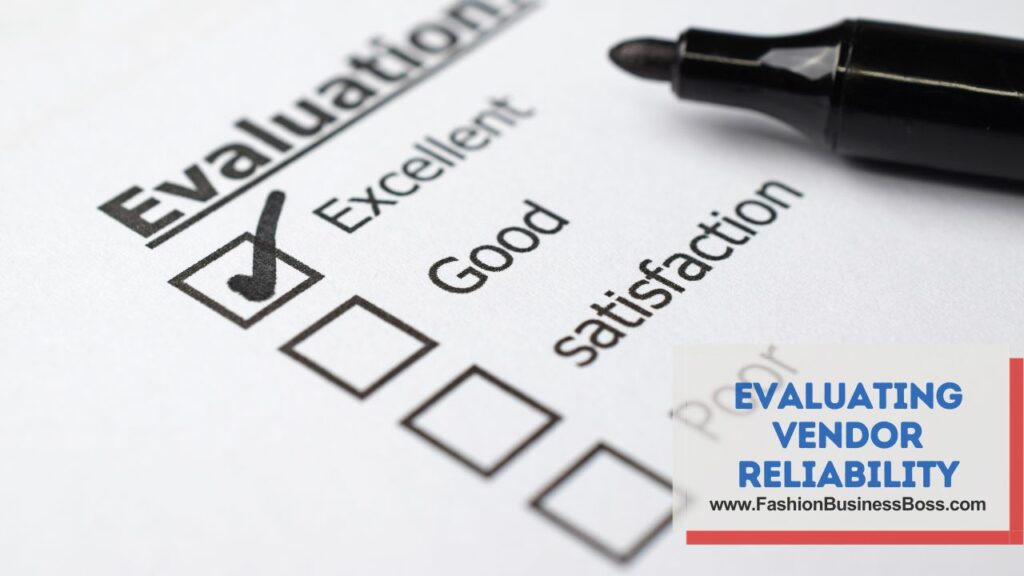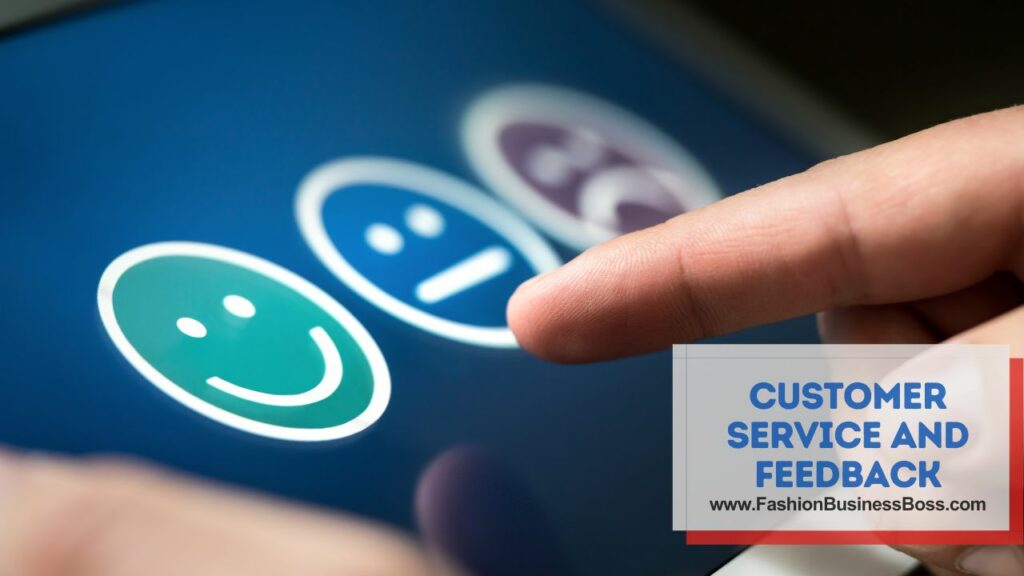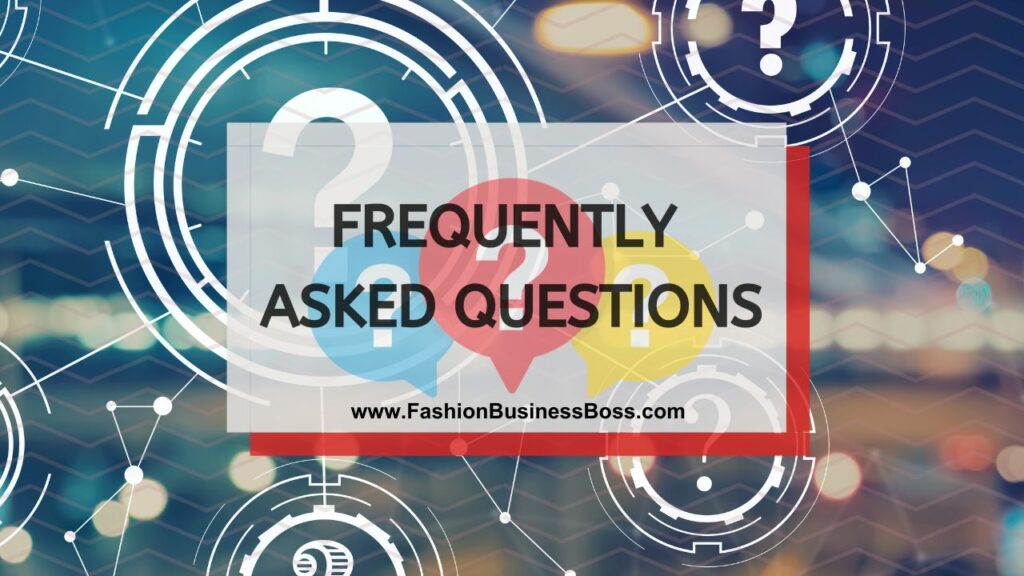Starting a clothing business can be an exciting and fulfilling venture for those with a passion for fashion and an entrepreneurial spirit. The fashion industry offers a plethora of opportunities for creative minds to showcase their unique designs and cater to diverse customer needs.
To excel in the fashion industry, research trends, identify your audience, set budgets, find reliable vendors, ensure quality, and foster partnerships. Create a unique brand, market effectively, manage inventory, offer great service, and explore expansion.
In this article, we will guide you through the process of finding the right clothing vendors to start your fashion business.
Researching Market Trends

In the fast-paced fashion industry, staying informed about market trends is essential for clothing brands to remain relevant and effective. Continuous research on the latest fashion trends, colors, and styles that align with your brand’s niche allows you to create designs that resonate with your target audience.
By understanding the ever-changing preferences of consumers, you can tailor your offerings to meet their demands and stay ahead of the competition. Conducting thorough market research further enables you to identify potential gaps in the market, uncover untapped opportunities, and ensure that your chosen clothing products are in high demand, setting a strong foundation for your brand’s growth and longevity.
Read more about: Weaving the Web: Creating Your Own Clothing Website
Identifying Your Target Audience
Understanding and identifying your target audience is a fundamental aspect of creating a clothing brand that resonates with potential customers. By analyzing demographics, preferences, and buying behaviors, you can gain valuable insights into the tastes and needs of your target market.
This knowledge allows you to tailor your clothing designs to meet their specific preferences, ensuring that your products align with what they are looking for. A deep understanding of your target audience enables you to craft clothing that not only meets their needs but also sparks a genuine connection, increasing the likelihood of customer loyalty and satisfaction.
Setting a Budget
Effective financial planning is crucial when embarking on a clothing business venture. Setting a well-thought-out and realistic budget is essential to ensure the smooth operation of your brand. This budget should encompass various aspects, including sourcing clothing vendors, manufacturing costs, marketing efforts, and other operational expenses.
By carefully estimating these financial requirements, you can effectively allocate resources, avoid unnecessary overspending, and ensure that your clothing business is financially sustainable and positioned for growth.
Sourcing Clothing Vendors
The growth of your clothing business heavily relies on finding reliable and high-quality clothing vendors. Explore different sourcing options, including local suppliers, domestic manufacturers, and international suppliers.
- Local Suppliers
Local suppliers offer the advantage of easier communication, faster shipping, and potential support for the local economy. Attend trade shows and networking events to connect with local clothing vendors.
- Domestic Manufacturers
Domestic manufacturers provide the benefit of higher quality control and adherence to labor and environmental standards. Look for clothing vendors within your country to reduce shipping times and costs.
- International Suppliers
International suppliers often offer competitive pricing, a wide range of products, and unique designs. However, conduct thorough research to ensure they meet quality standards and have a reliable shipping process.
Evaluating Vendor Reliability

When selecting clothing vendors for your business, conducting a thorough evaluation of their reliability is essential. Look into factors such as their reputation in the industry, level of experience, and feedback from past clients. Opting for vendors with a proven track record of consistently delivering high-quality products ensures that you can rely on them to meet your expectations and maintain the standard of excellence your brand strives for.
Making informed decisions based on this evaluation fosters strong partnerships with trustworthy vendors, ensuring a seamless supply chain and ultimately contributing to the growth and reputation of your clothing business.
Read more about: Where to Learn How to Make Clothes: Tailored Learning
Quality Assessment and Samples
Before solidifying partnerships with clothing vendors, it’s essential to request samples for careful evaluation. This step allows you to assess the quality of the clothing they offer and ensures that the fabric, stitching, and overall craftsmanship meet your stringent standards. By thoroughly examining the samples, you can verify that the products align with your brand’s commitment to excellence and guarantee that your customers will receive nothing short of the best.
This diligent approach to vetting potential partners safeguards the integrity of your clothing business and reinforces your dedication to delivering top-notch products to your valued customers.
Negotiating Pricing and Terms
When establishing partnerships with clothing vendors, engaging in effective negotiation is paramount. It’s crucial to discuss pricing, minimum order quantities, and payment terms that work for both parties involved. By finding common ground and creating a mutually beneficial relationship, you can foster a strong and lasting collaboration with your vendors, which is integral to the advancement of your fashion business.
Negotiation allows you to strike a balance between competitive pricing and maintaining the quality standards your brand upholds, ensuring that you can offer your customers excellent products at fair prices while optimizing stability for your clothing business.
Building Long-Term Partnerships
Fostering enduring and robust partnerships with clothing vendors is a cornerstone of a thriving fashion business. By cultivating strong relationships built on trust and mutual respect, you can enjoy various benefits over the long term. Consistent collaboration with your vendors can lead to more favorable pricing, as they are more likely to offer competitive rates to valued, loyal customers.
Over time, long-term partnerships often result in exclusive design opportunities, where vendors may be willing to work closely with your brand to create unique and customized clothing lines. Moreover, maintaining a reliable and ongoing association with vendors streamlines the production process, ensuring smoother operations, timely deliveries, and better overall efficiency for your clothing business.
Creating a Unique Brand Identity

Crafting a distinctive brand identity is an integral aspect of establishing a clothing line that stands out in a competitive market. It involves developing a cohesive and compelling representation of your brand’s values, style, and mission. By infusing your clothing line’s identity with a genuine and authentic essence, you create a powerful connection with your target audience.
A unique brand identity sets your fashion business apart from competitors, giving it a memorable and recognizable presence. It allows customers to connect with your brand on a deeper level, fostering loyalty and affinity, and ultimately contributing to the long-term growth of your clothing business.
Read more about: Where to Sell My Designer Clothes: Finding Your Market
Marketing Your Fashion Business
Implementing effective marketing strategies is essential for driving customer engagement and brand awareness in the competitive fashion industry. By harnessing the power of social media platforms, engaging in influencer collaborations, participating in fashion shows, and leveraging other relevant marketing channels, you can effectively showcase your unique clothing designs to a broader audience.
Social media platforms offer a direct and interactive way to connect with potential customers, while influencer collaborations can amplify your brand’s reach and credibility. Fashion shows provide a live and immersive experience, allowing you to showcase your collections and create buzz around your brand. By adopting a comprehensive and well-rounded marketing approach, you can effectively promote your fashion business, attract customers, and establish a strong presence in the dynamic fashion landscape.
Setting Up an Online Store
Establishing a robust online store is an indispensable step in the modern era of fashion business. With the widespread adoption of digital platforms, having an online presence is crucial for reaching a broader audience and tapping into the global market. Creating a user-friendly e-commerce website allows you to showcase your clothing collections in a visually appealing and easily accessible manner, enabling customers to browse, shop, and make purchases with convenience and ease.
A well-designed online store not only expands your brand’s reach but also enhances the overall shopping experience, ensuring that potential customers can explore your clothing offerings effortlessly and encouraging repeat business through a seamless and enjoyable online shopping journey.
Managing Inventory and Fulfillment
Efficiently managing inventory and order fulfillment is a critical aspect of running a clothing business. By implementing a robust inventory management system, you can keep track of stock levels, monitor product availability, and avoid stockouts or overstock situations. This not only ensures that you have the right products in stock to meet customer demand but also enables you to fulfill orders promptly and accurately.
Timely order fulfillment is crucial for customer satisfaction, as it reflects your brand’s commitment to delivering on promises and meeting customer expectations. Satisfied customers are more likely to become repeat buyers, contributing to the growth and sustainability of your clothing business through positive word-of-mouth referrals and increased customer loyalty.
Customer Service and Feedback

Delivering excellent customer service is a cornerstone of building strong brand loyalty in the competitive fashion industry. By going above and beyond to meet the needs and expectations of your customers, you create a positive and memorable shopping experience that fosters a deep connection with your brand.
A satisfied customer is more likely to become a loyal advocate for your clothing business, promoting your brand through word-of-mouth and repeat purchases. Encouraging customer feedback is equally vital, as it provides valuable insights into what your customers love about your products and where improvements can be made. By actively listening to customer feedback and implementing necessary changes, you demonstrate your brand’s dedication to continuous improvement, ensuring that your clothing line remains relevant, innovative, and customer-centric over time.
Read more about: Wholesale Fashion Clothing Suppliers: Your Gateway to Affordable Style
Expanding Your Fashion Empire
As your clothing business gains momentum, it’s essential to explore opportunities for expansion to solidify your fashion empire. Expanding your product range allows you to cater to a broader audience, meeting diverse customer preferences and needs. Venturing into new markets, whether domestically or internationally, opens doors for reaching untapped audiences and building a global brand presence.
Embracing omni-channel strategies, such as opening physical retail stores alongside your online presence, enhances your brand’s visibility and provides customers with different ways to engage with your products. With careful planning and a customer-centric approach, expansion can be a significant milestone in the growth of your fashion empire, enabling you to leave a lasting impact in the fashion industry.
Conclusion
Starting a clothing business can be an exciting journey filled with creativity and innovation. Finding the right clothing vendors is a critical step in this process, as they play a pivotal role in shaping the quality of your fashion brand. Remember to stay true to your brand identity, prioritize customer satisfaction, and continuously adapt to changing market trends to thrive in the fashion industry.
Frequently Asked Questions

How can I identify the right niche for my clothing business?
Identifying the right niche involves researching market trends, analyzing your interests, and understanding customer needs. Look for gaps in the market and areas where you can bring a unique perspective.
What factors should I consider when evaluating clothing vendors?
When evaluating clothing vendors, consider their reputation, experience, product quality, and client reviews. Also, assess their ability to meet your specific requirements and production capacity.
Is it necessary to have an online store for my clothing business?
In today’s digital age, having an online store is essential for reaching a broader audience and increasing sales. An e-commerce website allows customers from all over the world to discover and purchase your products conveniently.
How do I market my clothing business on a limited budget?
Utilize cost-effective marketing strategies like social media marketing, influencer collaborations, and content marketing. Engage with your target audience and create compelling content to build brand awareness.
To learn more about starting your own clothing business, check out my startup documents here.
The information provided by FashionBusinessBoss.com (“The Site”) is for general informational purposes only. All information on the Site is provided in good faith, however, we make no representation or warranty of any kind, express or implied, regarding the accuracy, adequacy, validity, reliability, availability or completeness of any information on the Site. Under no circumstance shall we have any liability to you for any loss or damage of any kind incurred as a result of the use of the Site or Reliance on any information provided on the Site. Your use of the Site and your reliance on any information on the Site is solely at your own risk. This blog post is for educational purposes only and does not constitute legal advice. Please consult a legal expert to address your specific needs. Terms and Conditions. (https://fashionbusinessboss.com/terms-and-conditions/)

Meet Shawn Chun: Entrepreneur and Fashion Business Fan.
I’m a happy individual who happens to be an entrepreneur. I have owned several types of businesses in my life from a coffee shop to an import and export business to an online review business plus a few more and now I create online resources for those interested in starting new ventures. It’s demanding work but I love it. I do it for those passionate about their business and their goals. That’s why when I meet a designer or boutique owner at a craft fair, farmers market, retail location or anywhere else I see myself. I know how hard the struggle is to retain clients, find good employees and keep the business growing all while trying to stay competitive.
That’s why I created Fashion Business Boss: I want to help fashion business owners like you build a thriving business that brings you endless joy and supports your ideal lifestyle.

